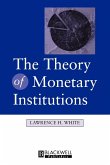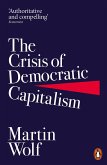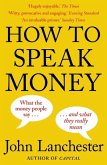The "software" that structures our financial system and, through it, our broader economy is made up of certain basic concepts that guide how we think and hence act. These concepts include money, credit, finance, investment, and - above all - capital. This conceptual software manifests itself in our current "operating system" of institutions and practices. But our concepts and the system itself are radically out of date both as representations of monetary, financial, productive, and distributive reality and thus as realizations of democratically productive potential. Robert Hockett shows that this mismatch has serious consequences and argues that it's time for a complete overhaul of our economic understanding. The underlying conceptual problem, Hockett contends, is that we miss the extent to which our financial systems are deeply and ineradicably public. Money is an inherent emanation of our basic social contract; capital in turn emerges as almost entirely publicly generated. Our systems of finance and investment must therefore be publicly and democratically determined. Leaving them in the hands of private powers means resigning ourselves to current health and income inequalities, evermore frequent financial crises, and economic stagnation and decline - to say nothing of social and political deterioration across the developed world. Lucid and passionately argued, Making Capital Democratic is a seamless blend of philosophy and economics that calls for profound intellectual and institutional changes that would befit a democracy that is democratic in more than just name. The "software" that structures our financial system and, through it, our broader economy is made up of certain basic concepts that guide how we think and hence act. These concepts include money, credit, finance, investment, and - above all - capital. This conceptual software manifests itself in our current "operating system" of institutions and practices. But our concepts and the system itself are radically out of date both as representations of monetary, financial, productive, and distributive reality and thus as realizations of democratically productive potential. Robert Hockett shows that this mismatch has serious consequences and argues that it's time for a complete overhaul of our economic understanding. The underlying conceptual problem, Hockett contends, is that we miss the extent to which our financial systems are deeply and ineradicably public. Money is an inherent emanation of our basic social contract; capital in turn emerges as almost entirely publicly generated. Our systems of finance and investment must therefore be publicly and democratically determined. Leaving them in the hands of private powers means resigning ourselves to current health and income inequalities, evermore frequent financial crises, and economic stagnation and decline - to say nothing of social and political deterioration across the developed world. Lucid and passionately argued, Making Capital Democratic is a seamless blend of philosophy and economics that calls for profound intellectual and institutional changes that would befit a democracy that is democratic in more than just name.
Bitte wählen Sie Ihr Anliegen aus.
Rechnungen
Retourenschein anfordern
Bestellstatus
Storno








